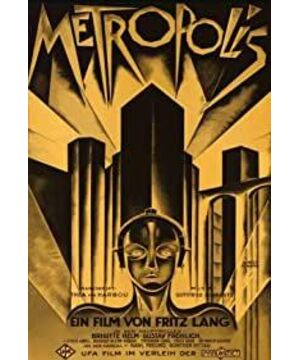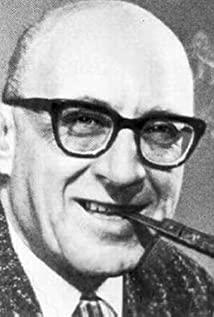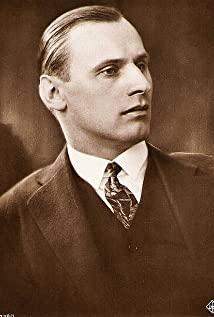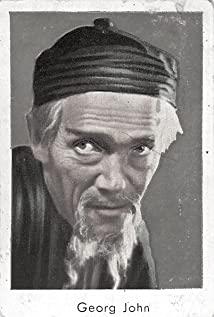Metropolis-style movies have always been my childhood nightmare. The bizarre high-rise buildings, the life of a drunken man, and the deepest impression of capitalism are all obtained from the comic strips and the few words in children's literature, such as the dark and treacherous building in "The Cube Building"; Xiao Danli refused her mother's invitation to take her abroad, and stayed behind to build the motherland. In the comic strip, foreign countries were drawn like Sodom City; there was also a strange fairy tale "Half Frontier City", which is simply the Chinese version of "1984". ”, the whole body is chilled: the streets are full of traffic and people come and go, but only half of the city is chaotic and crowded, but the other half is quiet, not even a single figure...
The magnificent sights of these metropolises are deeply imprinted in my mind. The towering skyscrapers and flashing neon lights were my tower of Babel in a small 1980s fourth-tier town with no buses and no traffic jams. Later, China followed the pace of the world, and the raging urbanization made everyone live a life in a metropolis. Naturally, they were not so stimulated when they went abroad. However, the extreme landscape on the surface of the earth that can be constructed by the extreme productivity of human beings has always been Like a black hole that can attract me to dig into, the oppression and feeling of the wonders created by man make me fear my own smallness and fragility, and I am intoxicated and amazed by their grandeur, and I can't help being attracted by it. In my childhood imaginings, and even in my daydreams today, these huge man-made objects often appear, with countless windows, each with warm lights, and I am a lonely passer-by in this world.
The story of "Metropolis" is set in such a grand capital. The young master on the ground occasionally saw the underground workers and decided to help them, and at the same time fell in love with the saintly Mary; while the underground workers, under the bewitched of the witch created by the mad scientist in the image of Mary, decided to destroy it. Their tool of production, the steam machine, was determined to be free. The young master's father, the master of the metropolis, faced this irreconcilable contradiction and made his own decision. A silent movie, with a heavy stage performance, and extreme plot; however, it is such a movie that must sound outdated, and it still shocks every new audience, including me.
The great thing about "Metropolis" is that it was a movie a hundred years ago, and a hundred years later it doesn't look outdated today. The high-rise buildings built by those models are still lifelike, and the viaduct that shuttles in front of the high-rise buildings still looks new and advanced to us. A hundred years ago, when there were no computers and TVs, video calls were made. The AI robot, I suspect, did not imagine the future, but led the future. Today's skyscrapers and helicopters between buildings , as well as mobile phone videos, and even the image of a robot, are fakes influenced by the design of the film.
The greatness of Metropolis goes beyond the sci-fi design. Quite the contrary, this is an extremely realistic movie. The world in the movie - the city in the clouds on the ground, the drunken life of the rich and the dungeon - the dark underground of the working life of the exploited class, is timeless in any era. Farmers’ hoes have been replaced by factory machines, and factory machines have been replaced by computer bags in the subway; but the real world is always binary, and the human flesh battery of the majority is always supporting the operation of the metropolis. 996, human flesh battery, rich second generation... these are all traces in the movie, you will be amazed that the world still operates exactly the same a hundred years later, "Beijing Folding" is just a modern replica of "Metropolis", heaven. Young masters and young ladies in the world don’t notice the old man picking up trash at the entrance of the alley, and parents of private schools living on the top of Sunset Boulevard don’t notice the Hispanic slums in South Los Angeles. Rich people take their lives for granted, they don't know what it's like to be under the dirty ground; likewise, the people underground can't see the scenery on the ground.
So, it's a sci-fi movie, but nothing more realistic than this. It is expressing the reality of the future, and a hundred years later, most of it has become reality. All works that transcend the times are classics.
"Metropolis" obviously has strong religious significance, such as the heroine's name is Maria, such as the relationship between the master and the workers, such as the pentagram hanging upside down. Maria's double-sided image can even write an essay about it. But I don't want to talk about religion here, but only about reality. German Expressionism adds heavy metaphors to the film. Almost every image here has a symbolic meaning, and many of the deformed and even grotesque scenes are nightmarishly impressive. Expressionism also influenced the later Film Noir, becoming the biggest genre in the era of Hollywood's last black and white images.
I was amazed by the ending of the movie. Under such a complex and violent conflict, the director gave such a peaceful and hopeful ending, perhaps without the beatings of World War II. Of course, in this bizarre world after the war, from the beginning of the Cold War, energy, environment, climate, to today's Covid, I wonder if the director would think his films were too pessimistic or too optimistic if he lived to this day?
View more about Metropolis reviews











